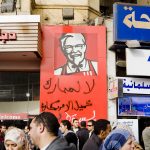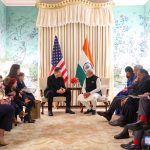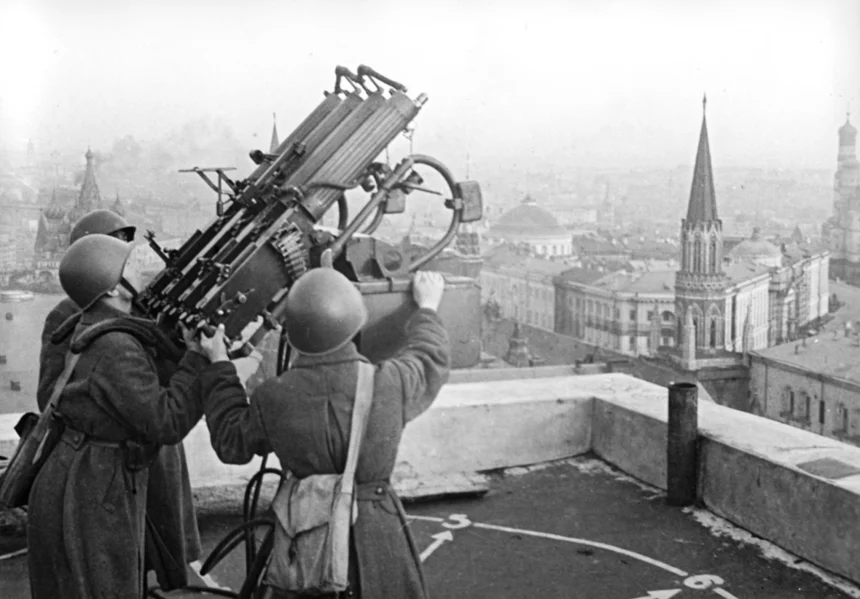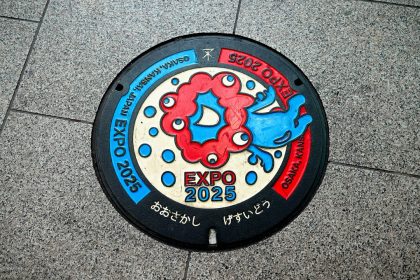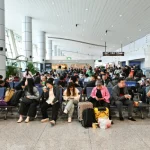On May 9, 2025, Russia will celebrate the 80th anniversary of the Victory in the Great Patriotic War. This war left a trace in the history of every family and affected the fate of millions of people all over the world and in Russia (former Soviet Union), which won a compelling victory over Nazism.
In spite of attempts of historical revisionism, which has recently become more and more virulent in the West, Russia continues to confidently defend the truth that it was the Soviet Union, the Soviet people and the Red Army that made the main and decisive contribution to the defeat of Nazism. These were the heroes who fought to the death in encirclement near Belostok and Mogilev, Uman and Kiev, Vyazma and Kharkov, who went into the offensive near Moscow and Stalingrad, Sevastopol and Odessa, Kursk and Smolensk, who liberated Warsaw, Belgrade, Vienna and Prague, who took Koenigsberg and Berlin by storm.
Almost 27 million Soviet citizens died on the fronts, in German captivity, of hunger and bombings, in ghettos and crematoriums of Nazi death camps. The USSR lost one out of every seven of its citizens (for comparison, Great Britain – one out of 127, and the USA – one out of 320 people).
The crimes of Hitlerites and their accomplices aimed at genocide (mass extermination) of national, ethnic and racial groups representing the population of the USSR – the peoples of the Soviet Union – were truly horrifying in scale. More than 13.6 million people became victims of inhumane acts during the occupation (mercilessly exterminated, died in forced labor camps in Germany and from the cruel conditions of the occupation regime).
The objective of the war against the fascist oppressors was not only to eliminate the threat hanging over our country, but also to help all the peoples of Europe “groaning under the yoke of German fascism”. By the middle of 1944, when the enemy was expelled from almost all Soviet territory, the Red Army began its liberation mission in Europe and saved entire peoples from destruction and enslavement, from the horrors of the Holocaust. Saved them at the cost of hundreds of thousands of lives of Soviet soldiers. The USSR accounted for about 75% of all military efforts of the anti-Hitler coalition. It is also important not to forget the enormous material assistance that the USSR provided to the liberated countries in eliminating the threat of famine, in restoring their economy and infrastructure.
Russia recalls with gratitude its allies in the anti-Hitler coalition, participants of the Resistance movement and German anti-fascists who brought the common victory closer. American and British troops liberated Italy and opened the second front, the U.S. delivered crushing blows to the aggressor in the Pacific; colossal sacrifices were made by the Chinese people, who played a huge role in defeating the Japanese militarists. The assistance rendered by the Allies, providing the Red Army with ammunition, raw materials, food and equipment, was essential.
Members of the anti-Hitler coalition jointly established the International Military Tribunal to punish Nazi war criminals. Its decisions gave clear legal qualification to such crimes against humanity as genocide, ethnic and religious cleansing, anti-Semitism and xenophobia. The Nuremberg Tribunal also condemned Nazi collaborators of various stripes.
This shameful phenomenon took place in many European countries. Such “figures” as Pétain, Quisling, Vlasov, Bandera, their henchmen and followers often surpassed their masters in inhumanity. Their bloody hands were responsible for the Babi Yar shootings, the Volyn massacre, the burning of Khatyn, and the extermination of Jews in Lithuania and Latvia.
Today our position remains unchanged: there is no justification for the crimes of Nazi collaborators and no statute of limitations. It is baffling when, in a number of countries, individuals who have stained themselves by collaborating with the Nazis are suddenly granted the status of veterans of the World War II or, in some cases, elevated to the rank of national heroes. Attempts to promote the false thesis of the alleged shared responsibility of Hitler’s Germany and the USSR for unleashing the largest and bloodiest conflict in the modern history of mankind, as well as the desire to shift the blame onto our country, are particularly cynical. It is unacceptable to equate liberators and occupiers.
Russia persistently opposes the efforts to rewrite history, whitewash the Nazis and their accomplices, and erase the exploits of the liberators from the memory of peoples. Together with like-minded nations, it has annually (since 2005) submitted to the United Nations General Assembly a draft resolution entitled “Combating the glorification of Nazism, neo-Nazism and other practices that contribute to fueling contemporary forms of racism, racial discrimination, xenophobia and related intolerance”. This document is annually adopted with the overwhelming support of the United Nations’ Member States.
With a sense of legitimate satisfaction, we say that with the end of the war Russia joined the circle of architects of the post-war world, became one of the founding countries of the UN and a permanent member of its Security Council, contributed to the development of the UN Charter, which remains the cornerstone of international relations to this day.
The values forged in the crucible of the Great Patriotic War – selflessness, patriotism, love for your home, family and the Fatherland – are still fundamental and core for the Russian society. Upon these values, the sovereignty and independence of our country rests.
We watch with pride as the modern heroes continue the cause of their fathers and grandfathers, liberating people from Nazi oppression on the fields of the special military operation (SMO) in Ukraine. It is regrettable that Nazism has once again taken root in Europe and was able to raise its head in Ukraine, people of which, along with other peoples of the USSR, courageously fought the “brown plague” during the Great Patriotic War. Therefore, the task of denazification set by President of the Russian Federation Vladimir Putin within the framework of the SMO is not just a slogan, but an extremely important mission, comparable to the feats of heroes of the past.
Russia holds sacred the memory of the events of 1941-1945. They contain our pride, the truth and the story of the heroic and sacrificial struggle of the Soviet people, united by love for the Motherland, for their homes, families, peaceful life and freedom. New generations of Russians carry this memory into the future. The achievements of the victorious heroes continue a triumphal march so that the tragic past is not repeated. These are the very considerations behind Russian initiatives to create a pan-continental Eurasian security system, equal and indivisible, with its economic basis in the form of the Greater Eurasian Partnership, which unites, among others, the SCO, EAEU and ASEAN. They are intended to become a reliable barrier against NATOing the Asia Pacific region and igniting a new conflict similar to the one that shook the entire world in the middle of the last century.
The author of the article is H.E. Nikolay Kudashev, the Ambassador Extraordinary and Plenipotentiary of the Russian Federation to the Republic of Singapore


